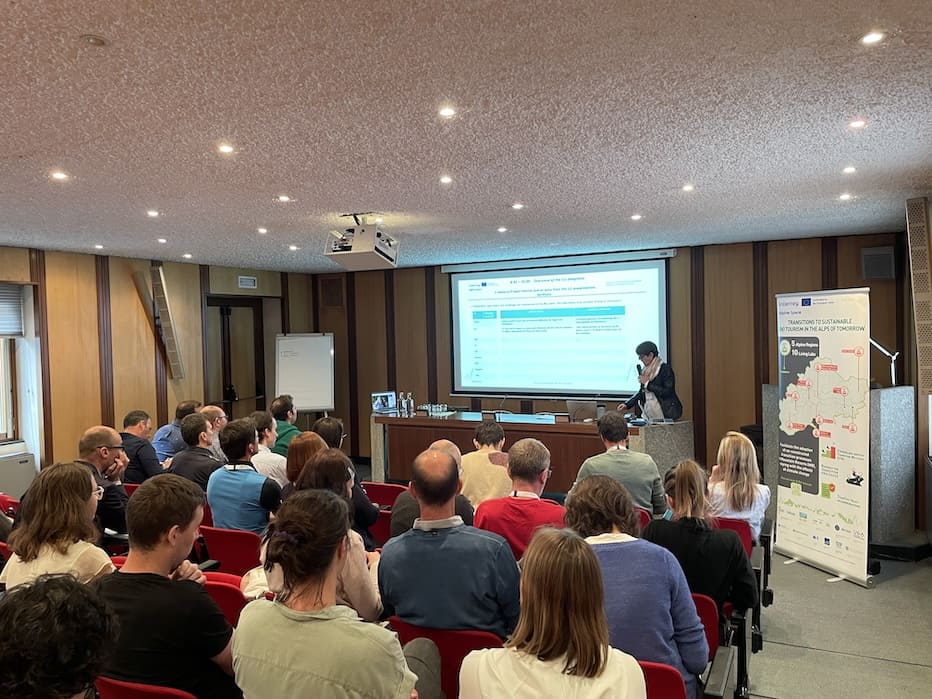The event, organized by the project partners Lombardy Region and UNIMONT – University of Milan, hosted partners in Chiesa Val Malenco (IT) from the 9 ski resorts involved as Living Labs. In these territories, participatory workshops and engagement with local stakeholders have been organized to define future and shared strategies for a sustainable transition of ski resorts. The meeting was attended by representatives of Maniva and Valmalenco for Italy, Kranjska Gora and Rogla for Slovenia, Megève and Saint-Pierre-de-Chartreuse for France, Sankt Corona and Großes Walsertal for Austria and Surselva for Switzerland. The participants were involved in a dense workshop, during which, divided by groups, they discussed the issues they are facing and shared experiences related to the current state of ski resorts. Then, they proceeded to discuss the future of their territories, through the use of the building scenario exercise.
The context of Valmalenco – one of the two Italian living labs – allowed participants to learn about the approaches adopted by local municipalities, shared thanks to the presence of the mayors of Chiesa in Valmalenco, Lanzada, and Caspoggio. Climate change has already posed significant challenges to winter tourism and territorial identity. These challenges have already been addressed by the municipalities of the Valley to diversify the tourism offer and increase services to the inhabitants
The meeting was a strategic occasion, participated not only by the project partners coming from the academic world, but also by the representatives of the municipalities, ski resorts manager, policymakers, tourist agency and DMOs. The aim was to share the diagnosis of the driving forces and the main challenges that a mountain resorts (MR) must face in the next years and to start the discussion on possible future scenarios. The expected result is to foster shared processes with the local population and greater territorial resilience.
The TranStat project will involve the nine Living Labs in pilot activities leading in 2025 to the elaboration of a future scenario for the sustainable development of mountain resorts.



